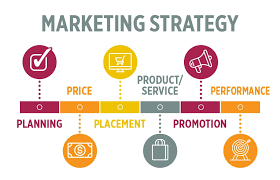In today’s digital-first environment, partnering with the best SEO company for attorneys can make a significant difference in standing out from the competition and effectively reaching prospective clients. Many law firms understand the importance of ranking on Google but often lack the in-depth SEO expertise needed to achieve top results. Working with an SEO company that specializes in legal services can help firms optimize their online presence, making it easier to connect with clients and establish themselves as authorities in their practice areas. This article explores advanced strategies law firms can employ to dominate Google rankings and drive consistent, high-quality traffic.
Why SEO is Crucial for Law Firms
For law firms, being visible online isn’t just about marketing—it’s about credibility. Potential clients often research extensively before choosing a lawyer, and your firm’s online presence can strongly influence their decision. If your website ranks high on Google for relevant search terms, it establishes trust and positions your firm as a go-to authority in your specialty. With increased visibility, you can attract and convert more leads, positioning your firm as an industry leader.
1. Conducting In-Depth Keyword Research
Keyword research is foundational to any successful SEO strategy. For law firms, understanding the keywords potential clients use when searching for legal services is essential. Start with a blend of short-tail and long-tail keywords. Short-tail keywords are broad, high-volume terms such as “personal injury lawyer,” while long-tail keywords are more specific phrases like “personal injury lawyer in [City Name].”
- Use Keyword Research Tools: Platforms like Ahrefs, SEMrush, and Google Keyword Planner can help identify high-potential keywords. Target keywords based on user intent and align them with your services.
- Focus on Local Keywords: Location-based keywords help your firm rank for searches relevant to your geographical area. Terms like “best criminal lawyer in Los Angeles” or “divorce attorney in Miami” are ideal for reaching clients near you.
- Target Long-Tail Keywords: Long-tail keywords are often less competitive and align closely with the intent of searchers looking for specific legal services. Use questions such as “How much does a DUI lawyer cost?” to capture more targeted traffic.
2. Optimizing On-Page SEO for Legal Websites
On-page SEO refers to optimizing elements on your website to improve rankings. Here are the most critical on-page SEO factors law firms should focus on:
- Title Tags and Meta Descriptions: Each page on your site should have a unique, keyword-rich title tag and meta description. Include primary keywords naturally within these elements to improve click-through rates (CTR).
- Header Tags (H1, H2, H3): Structuring content with header tags improves readability and helps search engines understand the context of your content. Include primary and secondary keywords within these headers.
- URL Structure: Short, descriptive URLs are better for both SEO and user experience. Avoid long URLs with unnecessary numbers or symbols.
- Content Quality and Keyword Density: While keywords are important, focus on writing high-quality, informative content. Avoid keyword stuffing—Google favors pages that provide real value to readers.
- Internal Linking: Guide users to other relevant content on your site with strategic internal linking. This reduces bounce rates and helps Google understand the structure of your website.
3. Building High-Quality Backlinks
Backlinks from reputable websites can significantly impact your law firm’s SEO rankings. Google views backlinks as votes of confidence, indicating that your content is credible and valuable.
- Guest Posting on Legal Blogs: Write articles for established legal blogs or news sites. These platforms often link back to your website, boosting your authority.
- Directory Listings: List your firm in reputable legal directories like Avvo, Justia, and FindLaw. These directories often have high domain authority and provide valuable backlinks.
- Content Partnerships: Collaborate with other legal professionals or law-related websites to create mutually beneficial content, such as co-authored articles or interviews.
- Legal Associations and Community Engagement: Joining and participating in associations such as the American Bar Association or local bar associations can provide networking opportunities and potential backlinks.
4. Creating High-Quality, Informative Content
Content is king, especially for law firms. High-quality content allows potential clients to find answers to their questions and learn more about the legal services your firm offers.
- Legal Blogs: Regularly updated blogs are a powerful SEO tool. Create posts that answer common legal questions, discuss recent legal news, and provide insights into your practice areas.
- Client Education Guides: Publish in-depth guides and resources on complex legal topics, such as “What to Expect in a Personal Injury Case” or “A Step-by-Step Guide to Filing for Divorce.”
- Video Content: Video is a highly engaging format that can boost SEO performance. Consider video FAQs, where attorneys answer common client questions, or create explainer videos on complex topics.
5. Enhancing User Experience (UX) and Website Speed
Google rewards websites that offer a great user experience (UX) and have fast loading times. Improving UX and speed can positively impact both rankings and conversion rates.
- Mobile Optimization: A majority of users access websites via mobile devices. Ensure that your website is mobile-responsive and loads quickly on all devices.
- Page Speed Optimization: Use tools like Google PageSpeed Insights to analyze and improve load times. Consider compressing images, using lazy loading, and minimizing JavaScript and CSS to improve page speed.
- Easy Navigation: Simplify website navigation so that users can easily find information. A well-structured menu and internal linking are essential for a positive user experience.
- Readable Fonts and Layouts: Use clear fonts, ample white space, and structured layouts to improve readability and engagement.
6. Leveraging Local SEO for Law Firms
Local SEO is crucial for law firms as most clients prefer legal services near their location. Optimizing for local searches ensures that your firm ranks well in Google’s Local Pack and maps.
- Google My Business Profile: Claim and optimize your Google My Business (GMB) listing. Include your firm’s name, address, phone number, and operating hours, and regularly update it with new photos and client reviews.
- Local Citations: Ensure your firm’s information is consistent across all online platforms, such as Yelp, Bing Places, and Apple Maps.
- Client Reviews: Encourage satisfied clients to leave positive reviews on your Google My Business profile and other review sites. High ratings improve credibility and rankings in local search results.
7. Tracking and Analyzing SEO Performance
SEO is an ongoing effort that requires regular monitoring and analysis. Use analytics tools to measure the effectiveness of your strategies and adjust as necessary.
- Google Analytics and Search Console: Track metrics such as organic traffic, bounce rate, and click-through rate. Use this data to understand what’s working and identify areas for improvement.
- Keyword Rankings: Monitor the rankings of your primary keywords to see which strategies are producing the best results.
- Conversion Tracking: Track conversions, such as form submissions or phone calls, to understand how well your website is turning visitors into clients.
- Monthly SEO Audits: Conduct regular SEO audits to address any technical issues, optimize for new keywords, and stay ahead of competitors.
Conclusion
With the right SEO strategy, law firms can enhance their online visibility, build authority, and attract a steady flow of qualified leads. By investing in detailed keyword research, on-page optimization, content creation, local SEO, and regular performance tracking, your firm can dominate Google rankings. A focused and sustained SEO effort will not only improve your online presence but also provide measurable, long-term results that bring new clients to your door.




